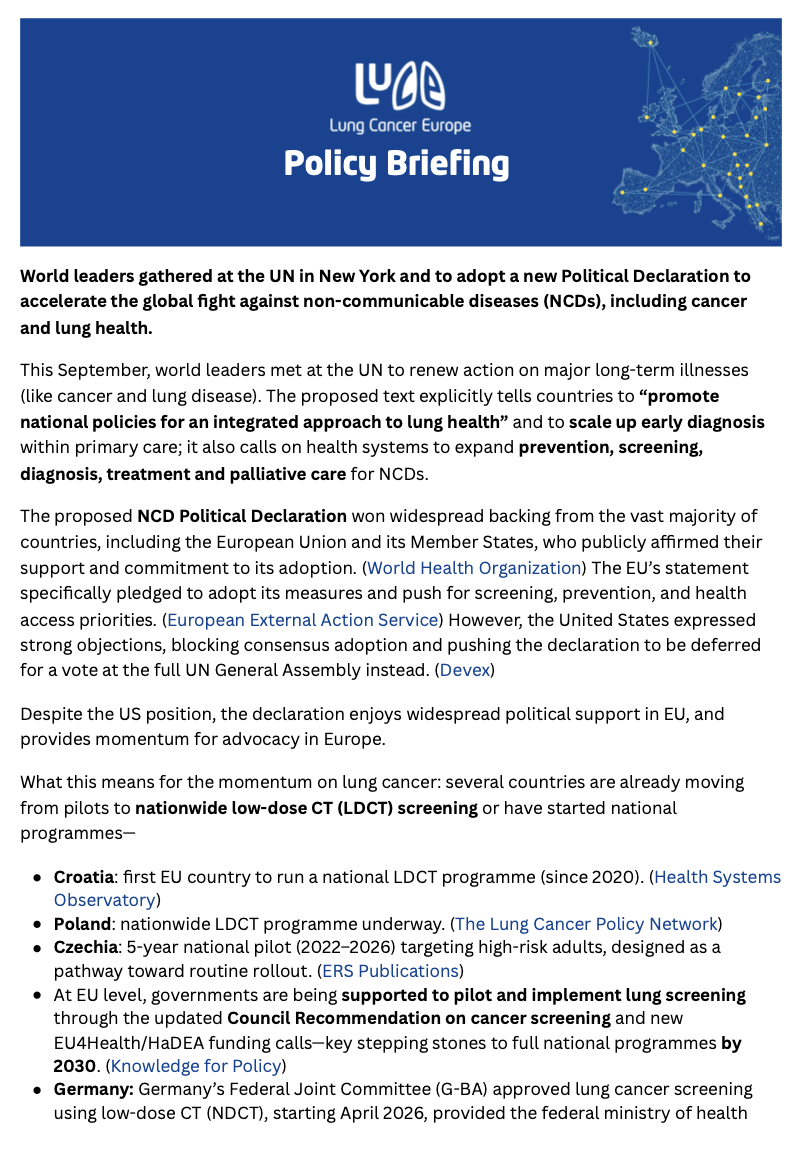-
+1 700 888 1234
-
Effingerstrasse 40 3008 Bern Switzerland

World leaders gathered at the UN in New York and to adopt a new Political Declaration to accelerate the global fight against non-communicable diseases (NCDs), including cancer and lung health.
This September, world leaders met at the UN to renew action on major long-term illnesses (like cancer and lung disease). The proposed text explicitly tells countries to “promote national policies for an integrated approach to lung health” and to scale up early diagnosis within primary care; it also calls on health systems to expand prevention, screening, diagnosis, treatment and palliative care for NCDs.
The proposed NCD Political Declaration won widespread backing from the vast majority of countries, including the European Union and its Member States, who publicly affirmed their support and commitment to its adoption. (World Health Organization) The EU’s statement specifically pledged to adopt its measures and push for screening, prevention, and health access priorities. (European External Action Service) However, the United States expressed strong objections, blocking consensus adoption and pushing the declaration to be deferred for a vote at the full UN General Assembly instead. (Devex)
Despite the US position, the declaration enjoys widespread political support in EU, and provides momentum for advocacy in Europe.
What this means for the momentum on lung cancer: several countries are already moving from pilots to nationwide low-dose CT (LDCT) screening or have started national programmes—
The proposed declaration puts equity front and center and uses clear, actionable language that patient advocates can reference:
